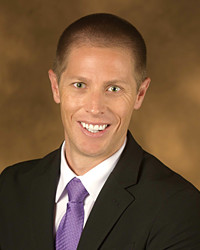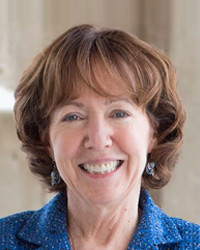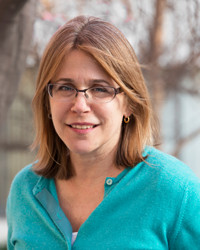Registration for the 2018 POD/AACU Organizational Development Institute is now closed.
Measuring Quality, Scalable, Evidence-Based Faculty Development
Tuesday, January 23, 9:00 AM–5:00 PM
Washington, D.C. / Grand Hyatt Hotel
Held in conjunction with AAC&U’s 2018 Annual Meeting
The Organizational Development Institute and AAC&U
Since 2009, POD has conducted the Organizational Development Institute (ODI) immediately before the AAC&U Annual Meeting. The AAC&U 2018 Annual meeting will be held January 24th–27th in Washington, D.C. This year’s AAC&U meeting theme is “Can Higher Education Recapture the Elusive American Dream.” For more information about the AAC&U annual conference, please see http://www.aacu.org.
Institutional Commitment to Teaching Excellence: Assessing the Impact of Faculty Development
Research indicates that faculty learn about teaching in multiple ways as their careers unfold, that support for faculty learning leads to improved teaching, and that improved teaching leads to improved student learning outcomes (Condon, et al., 2016). Faculty development, learner-centered teaching, and student success form a mutually shaping relationship where each reinforces and bolsters the other (Brown & Kurzweil, 2017; Jankowski, 2016). What teachers do matters and what institutions do to provide support in teaching development for faculty also matters.
This highly interactive Institute is designed to address how faculty, faculty developers, and academic leaders can partner to support instructors’ learning through faculty development, as well as how centers might measure their impact on individual faculty, student learning, and the institution more broadly.
The facilitators, all teaching and learning scholars and practitioners, will draw from their experiences in multiple organizational roles and across multiple institutional types and national higher education associations. In turn, participants will have multiple opportunities to identify and discuss quality assessment measures that will best serve their programmatic needs. The overarching goal is to identify promising practices for benchmarking quality, scalable, evidence-based faculty development that supports learner-centered teaching for all students.
The morning session will provide a brief overview the project’s origins and rationale. We will review research on the emerging relationship between faculty development, instruction, and student learning; explore current faculty development assessment practices; articulate the teaching effectiveness outcomes that faculty development programs are striving to achieve; and collectively generate promising assessment methods and practices that can enhance teaching, learning, and the influence of teaching and learning centers.
The afternoon session will discuss how to increase the visibility of the work of teaching and learning centers and elevate the role of instructional quality and preparedness within the institution. The facilitators will share a beta framework and innovative matrix that can help faculty developers and academic leaders gauge the progress of a teaching center. A primary purpose of the matrix is to promote and scale teaching excellence via a stable architecture for high-quality, evidence-based impact. The matrix can be used to assess, strengthen, and communicate the impact of post-secondary faculty development on campus-wide instructional excellence. Participants will place their centers in the matrix, identifying areas of strength, and opportunities for further development.
As part of the Institute, all participants will receive a copy of the 2017 white paper, “Institutional Commitment to Teaching Excellence: Assessing the Impacts and Outcomes of Faculty Development” and “The Beta Faculty Development Center Matrix” published by the American Council on Education and funded by the Strada Education Network.
2018 Institute Lead Facilitators

Steve C. Taylor
Principal Investigator, Examining and Quality Assuring Postsecondary Pedagogy
Associate Director, Center for Education Attainment and Innovation
American Council on Education
Steven Taylor leads national initiatives on alternative education pathways, institutional change and innovation, and teaching excellence for ACE. He is principal investigator on the Gates Foundation-funded Alternative Credit Project Strada Education Network funded grant to research the impacts and outcomes of quality, scalable faculty development. Taylor has worked for over a decade designing and delivering training programs and working with non-traditional learners in the higher education and trade association sectors. His experience at institutions includes roles in student development at the University of North Texas and grant management and community relations at Richland College in Dallas, Texas. Taylor earned his bachelor’s and master’s degrees from Texas A&M University–Commerce and is working towards his doctor of business administration from Wilmington University.

Mary Deane Sorcinelli
Co-PI, Undergraduate STEM Education Initiative, Association of American Universities (AAU)
Senior Fellow, Institute for Teaching Excellence & Faculty Development
University of Massachusetts Amherst
Mary Deane’s research is in the areas of faculty professional development, mentoring, scholarly writing, improvement of teaching and learning, and the role of teaching centers in fostering 21st century faculty learning. She has published over 100 books, book chapters and articles, most recently co-authoring Faculty Development in the Age of Evidence (2016).
Mary Deane was honored with the Spirit of POD Award for outstanding lifetime leadership in faculty development and served as President of the POD Network (POD) Network in Higher Education. She has worked in 13 countries and was a Distinguished Visiting Professor, American University in Cairo, Egypt, and a Whiting Foundation Fellow, National University of Ireland Galway.
Mary Deane holds an M.A. in English Literature from Mount Holyoke College and an ED.D. in Educational Policy from UMass Amherst.

Catherine Haras
Senior Director, Center for Effective Teaching and Learning
California State University, Los Angeles
As Senior Director for our teaching center I collaborate with faculty and academic departments on the Los Angeles campus to fulfill our institutional mission to educate California’s future workforce. Cal State LA is ranked first in the country for the upward mobility of its students. Using inclusive and mindful pedagogies, we work with colleagues to refine teaching as an area of practice, and with academic programs to deepen a shared understanding of our vibrant, first-generation student body. I am very interested in the way that faculty think about their teaching. A related publication is “Institutional Commitment to Teaching Excellence: Assessing the Impacts and Outcomes of Faculty Development” (with M.D. Sorcinelli, S. C. Taylor, and L. von Hoene, 2017).

Linda von Hoene
Assistant Dean for Graduate Professional Development
Director, GSI Teaching & Resource Center
University of California, Berkeley
I develop, implement, and evaluate programs that prepare graduate students for teaching at Berkeley and in future careers, including teaching conferences for first-time GSIs, an online course on professional standards and ethics in teaching, workshops, consultations, teaching award programs, and our Certificate in Teaching and Learning in Higher Education. I also teach graduate-level courses on teaching and learning in higher education and on research mentoring and co-direct (with Sabrina Z. Soracco) Berkeley’s Summer Institute for Preparing Future Faculty and SMART, a graduate/undergraduate research mentoring program. My most recent publication (with Martin V. Covington and Dominic J. Voge) is Life Beyond Grades: Designing College Courses to Promote Intrinsic Motivation (Cambridge, 2017).
Co-Facilitators
Emily Daniell Magruder
Director, Institute for Teaching and Learning
California State University, Office of the Chancellor, and independent scholar-practitioner, author and educational consultant
As the Director of the Institute for Teaching and Learning in the California State University Office of the Chancellor, Emily fosters faculty professional growth and collaboration, with an emphasis on excellence and innovation in teaching, throughout the 23-campus system. From 2004 to 2015, she was a faculty member in the Humanities Program at California State University, Dominguez Hills, where she taught interdisciplinary humanities face-to-face and online to undergraduates and coordinated a distance-learning master’s degree program. In 2011, she received the Lyle E. Gibson Distinguished Teaching Award. She began formal work as a faculty developer in 2012, when she helped re-open the Faculty Development Center at CSU Dominguez Hills and served as co-director. From 1995 to 2014 she taught in an intensive summer bridge program for entering freshmen and transfer students run by the Academic Advancement Program at the University of California, Los Angeles (UCLA), the nation’s largest university-based student diversity program. She has remained committed to designing teaching for diverse learners ever since.
Eva Fernández
Assistant Provost
Queens College, CUNY
Eva Fernández leads initiatives focused on improving student success in the areas of teaching excellence and experiential education, and through data-driven decision making. Her portfolio includes the Center for Teaching & Learning, which supports faculty in all aspects of teaching, curricular development, and assessment of student learning. Fernández is responsible for providing a vision as well as supports for expanding experiential learning opportunities for students college-wide, to jointly enhance academic and career preparation. Fernández is also Project Director of STEM Bridges Across Eastern Queens (http://hsistem.qc.cuny.edu), funded by the United States Department of Education, a large-scale course redesign and cross-campus articulation project with the primary goal of increasing the number of college graduates with STEM majors from Hispanic and low-income backgrounds.
Margery Ginsberg
Independent Scholar-practitioner, author and educational consultant
Formerly UW-Seattle, UI-Chicago
For over 20 years she has worked nationally and internationally with colleges and universities to enhance cultural diversity and inclusion. She teaches instructional design that encourages student motivation to learn within and across cultural groups. This work builds on experience as a university professor and, for nearly a decade, director of the University of Washington–Seattle doctoral program for aspiring educational leaders. In 2013, she was honored with the American Educational Research Association “Relating Research to Practice Award” for her application of interdisciplinary research focused on intrinsic motivation and cultural diversity in schools, community colleges, and universities.
In addition to research publications, Margery’s books for higher education include Enhancing Adult Motivation to Learn: A Comprehensive Guide to Teaching All Adults, 4th Edition (2017), Teaching Intensive & Accelerated Courses in College (Jossey-Bass/Wiley, 2009), and Diversity and Motivation: Culturally Responsive Teaching, 2nd edition (Jossey-Bass/Wiley, 2009), which won the 2011 Cyril O. Houle Award for Outstanding Literature in Adult Education. Margery has a Ph.D. in Bilingual/Multicultural/Social Foundations of Education from the University of Colorado-Boulder. She currently lives in Chicago and can be reached at [email protected].
Todd Zakrajsek
Associate Research Professor & Associate Director of Fellowship Programs, Department of Family Medicine, University of North Carolina, Chapel Hill
President, International Teaching Learning Cooperative
Dr. Todd Zakrajsek is an Associate Professor and Associate Director of the Faculty Development Fellowship in the UNC School of Medicine. Dr. Zakrajsek has founded or reconfigured, and then directed, centers for teaching and learning at UNC-Chapel Hill, Central Michigan University, and Southern Oregon University (where he also taught as a tenured Associate Professor of Psychology). He has been a visiting professor and delivered keynote addresses at approximately 300 campuses and teaching conferences in 46 states, 11 countries, and 4 continents.
Dr. Zakrajsek has served on many educational boards, including The Journal of Excellence in College Teaching; International Journal for the Scholarship of Teaching and Learning; Technology Enriched Instruction (Microsoft); Communicating Science in K-12 (Harvard); and Education Research Initiative (Lenovo). Currently, he directs 5 national Lilly Conferences on Evidence-Based Teaching and Learning. Todd’s recently co-authored books include Dynamic Lecturing: Research-based Strategies to Enhance Lecture Effectiveness (2017);Teaching for Learning: 101 Intentionally Designed Education Activities to Put Students on the Path to Success (2015); and The New Science of Learning: How to Learn in Harmony with Your Brain (2013).

